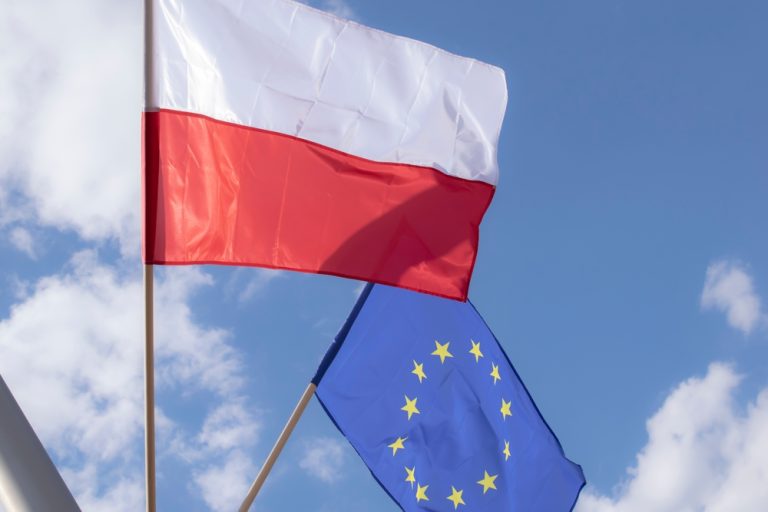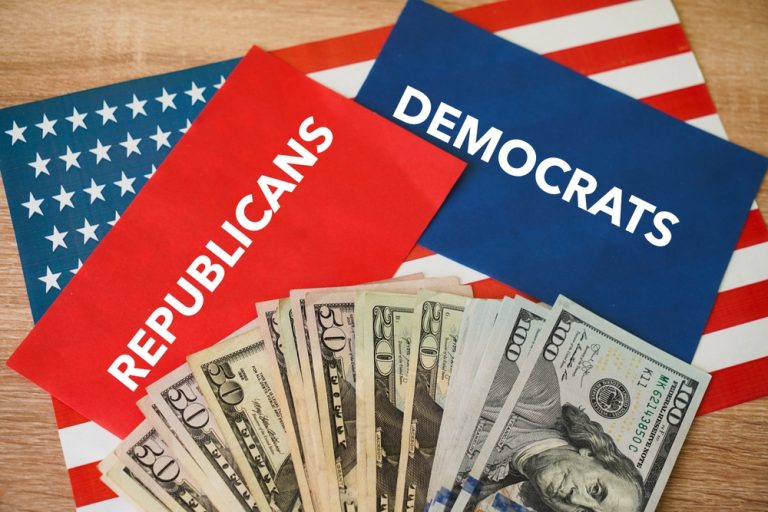
Results of the first months of the government of populist and libertarian Javier Milei. Part 1
Several months have already passed since the election of the scandalous and eccentric president of Argentina, Javier Milei, and, as we expected, he is much more cautious in his practical policy than in his election promises, the realization of which his opponents considered madness, catastrophe and terrible danger for the country. In the end, no “Revolution” and “Armageddon” have been happened, but in order not to distort the reality and diminish the significance of what happened in the country on November 19 last year, it is worth recognizing a number of important things. The change of power in Argentina will have far-reaching consequences in the struggle for influence in Latin America, and the election of Milei is a significant victory for the U.S. in containing Chinese influence. Argentina is the cornerstone of this confrontation, as the country is home to the lithium belt that both nations need to build batteries and a green economy, and it is likely that Washington will temporarily take the lead in this game. The EU, after the election of Milei, stepped up attempts to conclude a trade pact with the MERCOSUR countries and to enter with large investments in Argentina. These negotiations were slow because of MERCOSUR’s demands for tens of billions of dollars in reparations for colonialism, and there was hope that the new Argentine leader would not be so intransigent. And it was here that the paradoxes that exist between the beliefs and practices that Milei’s life pushes him toward began to play out well.

So, formally, the situation with MERCOSUR is now even more aggravated, because Milei promises to withdraw from this trade organization. Within its framework, the Argentine leftists wanted to create a state system for regulating the extraction of rare earth minerals with European money, but Milei, a libertarian and a staunch opponent of any state regulation is unlikely to agree to this. Paradoxically, this may suddenly play into the hands of China, which, in the absence of strong competitors under state cover and having the strongest competitive advantages, can take over the rare earth market in Latin America. And here Milei’s market values began to diverge not only from common sense, moderation and prudence, but also from his anti-Chinese attitudes, within which his allies suddenly became left-wing labor unions and environmentalists of the lithium province of Jujuy. And this whole situation shows well that Milei, who will fight the Chinese influence 99% of the time, will not be in a hurry to withdraw from MERCOSUR and will not be squeamish about state regulation where it benefits him. It should be understood that the China issue is not a simple one for Argentina, and Milei is actively criticizing China, although it is on Chinese loans that Argentina’s economy is now based, and the process of disengagement with Beijing will be long, difficult and probably unsuccessful. The abandonment of the peso as the national currency will not be easy either, and the parliament has already promised to prevent Milei from switching to the American dollar. In the course of the discussion there was an idea to start small, and in the first stage simply peg the peso exchange rate to the dollar. But against the background of the outflow of Western money from the country, which will intensify with the victory of the eccentric politician on purely rational grounds, this will quickly bring Argentina to another default. Most of Argentina’s foreign exchange reserves are now held in yuan, and this is a powerful lever of pressure from Beijing on Milei. This is probably why his team has already softened its stance on the issue of the country’s membership in BRICS, which it clearly wanted to suspend before the elections. And the U.S. itself has many arguments against the hasty dollarization of Argentina, which, as in Ecuador, may take 5-10 years, during which Milei may simply lose power. Besides, Joe Biden’s attitude to Milei, as well as earlier to Brazilian President Bolsonaro, is unlikely to be particularly benevolent, because both of them are considered “Trumpists”. Nevertheless, taking advantage of the moment, the U.S. will start to actively play its game in Argentina, and there is no doubt that China will start to oppose them with redoubled force, which will further intensify the struggle for control over Latin America’s third economy. And Milei will have to act on these realities, not on his dreams of a bright future of “economic liberalism”.
It is worth noting that in his series of retreats, Milei still showed his inherent eccentricity. He had not yet taken the presidency, but he immediately caused the first international crisis. In the last days of November, he promised to dramatically intensify efforts to reclaim the Falkland Islands from Britain, which the Argentines consider the Malvinas Islands and their legitimate territory. This caused a very aggressive reaction in London, with Prime Minister Rishi Sunak demanding no negotiations with Argentina and Defense Minister Grant Shapps even sending a patrol warship to the shores of the Falklands to increase pressure on Buenos Aires. Milei plans to create international conditions under which the issue of the status of the islands will be resolved in favor of Argentina. This was done by the previous presidential team, and they pushed through the decision of the islands belonging to Argentina at the MERCOSUR level and in UN committees, and forced the EU to recognize the islands as Malvinas for the right to invest in Argentina. During the campaign, Milei paid homage to Margaret Thatcher, who defeated the Argentines in the war over the islands almost 40 years ago, but now he has forgotten about that and has drifted towards right-wing populism. But more importantly, he may radically change the vector of his actions in the issue of cooperation with China. It is indicative that it was the Celestial Empire that promised Argentina to help resolve the Falklands issue, and China itself has views on these islands as a logistical base for access to Antarctica. The issue of ties with China and the country’s membership in BRICS will be decided in the framework of behind-the-scenes negotiations between the Chinese and Milei, where Beijing will have both difficulties and serious leverage, and the Falklands issue will play not the least role. After all, if Milei’s reforms fail or are curtailed, which is more and more likely, he may at any moment engage in radical populism again and even start a war for the islands, just to stay in power, and in this case China, which is ready to support “dictators”, will not seem so hostile to him.
Nevertheless, there is a better chance that Milei will maintain relations even with the Democratic regime in Washington, which is not very close to him, and here he needs extreme caution in his statements and real steps. Against this background, Argentina’s eccentric president-elect was literally reborn immediately after the election, and put aside almost all radical campaign promises. Apparently, the construction of the promised anarcho-capitalism in one country is canceled indefinitely or even forever. Thus, a member of Milei’s team, who promoted the idea of switching to the dollar, was sent into retirement, and the head of the country’s central bank, which no one even intends to abolish, will be Demian Reidel, former vice president of the Mauricio Macri era. Luis Caputo, an ex-banker from JPMorgan, who will become a lobbyist with Washington, has already promised not to allow the dollarization of the Argentine economy, which well reflects the American position, which is the unwillingness to take on such a financial burden. In fact, we are talking about the beginning of Macri’s second term, only now there will be more bankers in the government, and as 4 years ago there will be no libertarianism. It is unclear how these conservative bankers, who already have one default hanging over them, will be able to improve the situation in the country. After all, it was Macri’s decision to borrow $60 billion from the IMF that brought Argentina to its latest financial collapse, and his actions have led to the fact that today inflation has already reached 180% and the real peso exchange rate has collapsed below 1000 per dollar. And if the Milei is the same rate, we should expect another jubilee default, not a “paradise of economic freedoms”. Milei has also toned down his rhetoric toward Argentina’s main partners, and while he once considered breaking relations with China, he now wants them to be “good”. It is also comical that he invited Brazilian President Lula da Silva and Pope Francis to the inauguration, even though he did not want to do business with them before. His favorite Ukrainian President Volodymyr Zelensky and Israeli Prime Minister Benjamin Netanyahu also got in, and it looks like the most primitive populist “salad”. It is worth noting once again that without Chinese loans and subsidies, Argentina’s economy will collapse and it is possible that soon Milei, under pressure from Beijing, will finally and irrevocably decide to stay in BRICS. So, Argentina will avoid “shock therapy” for the time being, although there will be obvious problems with getting out of the crisis, and the “right-wing dream” should be forgotten.

The first time it became clear that electoral plans would be a thing of the past was when Javier Milei, then newly elected president of Argentina, came to visit his “key allies” in the United States. The visit was not immediately successful, and Biden flatly refused to meet with him due to his busy schedule. More unexpected and much more pessimistic was the fact that Milei was not received by Trump either, and although he congratulated him on his election victory, he is not going to meet with him at all at the moment. Only Jake Sullivan, national security adviser, agreed to talk to Milei, and this demonstrates the attitude towards the Argentine president, who has to bow to not the most important White House representative. As it was clear from the beginning, Biden ignored the visit of Milei, not because of his workload, but largely because he is a Trump fan, and this is something Biden has not forgiven either Bolsonar or the new Argentine leader. Of the positive outcomes of the trip, we can only highlight the fact that Milei met with Bill Clinton, through whom the Argentines will somehow negotiate with the IMF, to which they owe $60 billion. Milei even made Gerardo Vertein, one of the sponsors of the Clinton Foundation, the new ambassador to the U.S. So the Argentines will not deal with the White House, and not even with its potential future master Trump, but with the Clintons, and although they are still an influential clan in Washington, it is not far from the top level. First thing in the U.S. capital, Milei visited the Jewish cemetery in Queens and prayed there. It comically “embracing Judaism”, but that hardly helped him in the tough negotiations. The most logical strategy for Miley in such circumstances is to maneuver between the interests of the U.S. and China, because the White House has a cool attitude toward him, and the IMF is not going to give new grants to the ruined economy. The Chinese will demand the continuation of the previous administration’s policy of “special” treatment of Chinese investors. Milei’s awkward attempts to maneuver between Washington and Beijing show only that he is not at all ready for the realities of big international politics. He cannot even decide on which country to target in the new “Cold War 2.0” and is constantly breaking his campaign promises in both foreign and domestic policy. In such a situation, there is no “libertarian revolution” to speak of, although many believe that this political impotence is to Argentina’s benefit. However, some of his promises Milei have started to realize, which we will talk about in the second part of our article.

